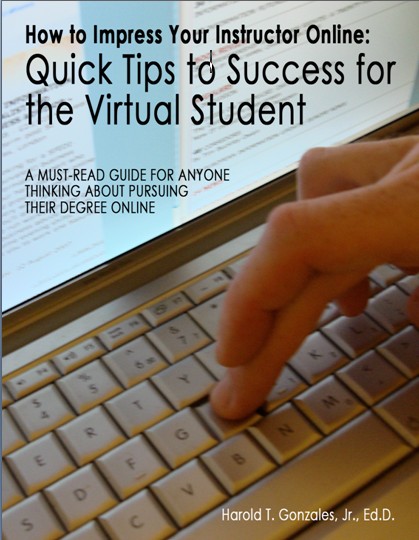 How to Impress Your Instructor Online: Quick Tips to Success for the Virtual Student by Harold T. Gonzales, Jr. Ed.D., is the essential resource guide for online students and educators working with students in higher education settings. The author offers an overview of the keys to success for the virtual student as they delve into their online learning experience and provides tips to impressing their online instructor. The book covers a broad range of topics including learning styles, time management techniques, online etiquette and communication skills, evaluation, and the challenging problems of plagiarism and cheating.
How to Impress Your Instructor Online: Quick Tips to Success for the Virtual Student by Harold T. Gonzales, Jr. Ed.D., is the essential resource guide for online students and educators working with students in higher education settings. The author offers an overview of the keys to success for the virtual student as they delve into their online learning experience and provides tips to impressing their online instructor. The book covers a broad range of topics including learning styles, time management techniques, online etiquette and communication skills, evaluation, and the challenging problems of plagiarism and cheating.
This must-read guide for any student considering online learning! Available for $4.99 in the College-Path.com Bookstore. Also on Amazon for the Kindle and Barnes and Noble Nook versions!









